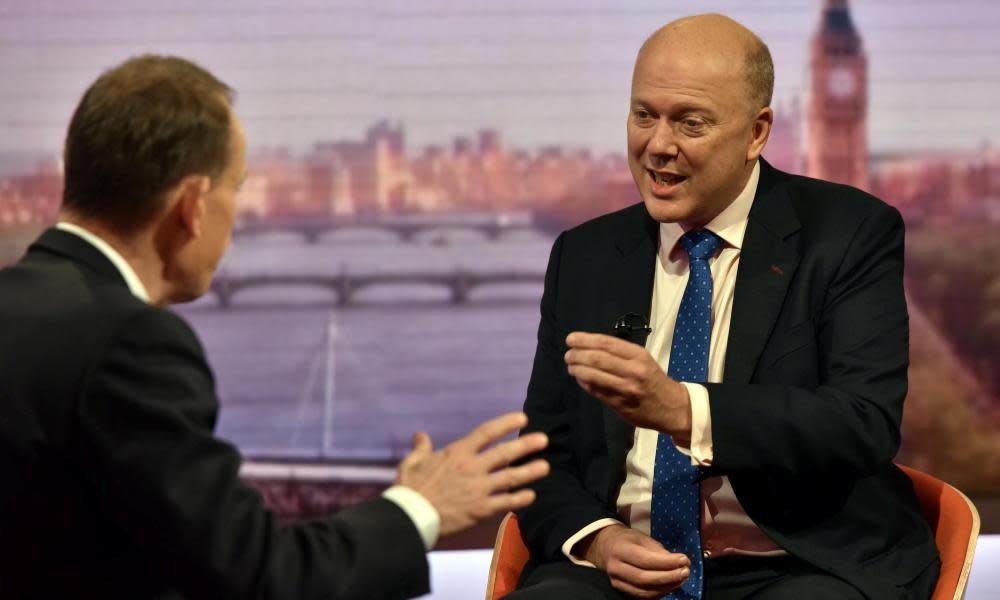Chris Grayling: farmers can grow more food if there is no Brexit deal

British farmers would need to grow more food to prevent a rise in food prices if Britain crashes out of the EU without a negotiated deal, a senior cabinet minister has said.
The transport secretary, Chris Grayling, who backed leave in the EU referendum, said the EU would also be damaged by a failure to reach a settlement, but suggested homegrown produce would protect UK citizens from soaring prices.
In remarks that critics said evoked the second world war “Dig For Victory” propaganda campaigns, Grayling said Britain would “succeed whatever happens” as concern mounted about lack of progress in the EU negotiations.
Asked what would happen to food prices if there was no deal, he said farmers would “grow more here” and “we’ll buy more from around the world”.
“It would mean that producers, supermarkets bought more at home, that British farmers produced more, that they bought more from around the world and it would damage French producers and continental producers,” he told the BBC’s Andrew Marr show on Sunday.
Labour said the comments showed a cavalier approach to a potentially serious issue. The shadow Brexit minister, Jenny Chapman, said: “This is yet another example of the Tories’ chaotic approach to the Brexit negotiations.
“Rather than planning for no deal, ministers appear to be telling us to dig for no deal. British farmers already work incredibly hard and to suggest that they could simply grow more food is ridiculous.”
Chapman said it was infighting in the Conservative party that was the biggest threat to Britain crashing out of Europe without a deal when the two-year article 50 timetable for withdrawal expires in March 2019.
“Ministers should stop fighting among themselves and start putting the national interest first,” she said. “That means avoiding a cliff edge for our economy and agreeing strong transitional arrangements within the single market and a customs union.”
Grayling said it was right for the government to prepare for the possibility that both sides would not reach an agreement. “I believe we’ll end up with a sensible agreement with the European Union because it’s in both of our interests that that should happen,” he said.
“But of course we must plan for all eventualities. People would think it was ridiculous if the government wasn’t planning for all eventualities.”
The former Lib Dem leader Tim Farron, the party’s new Defra spokesman, said farming would be one of the industries most at risk from a no deal Brexit. “The government’s inability to make progress on negotiations is leaving farmers in the lurch and creating huge uncertainty,” he said.
“Since farmers’ exports will collapse if they are lumbered with massive WTO tariffs in the event of a no-deal Brexit, farmers could certainly end up with lots of spare produce they won’t be able to sell.”

 Yahoo News
Yahoo News 
